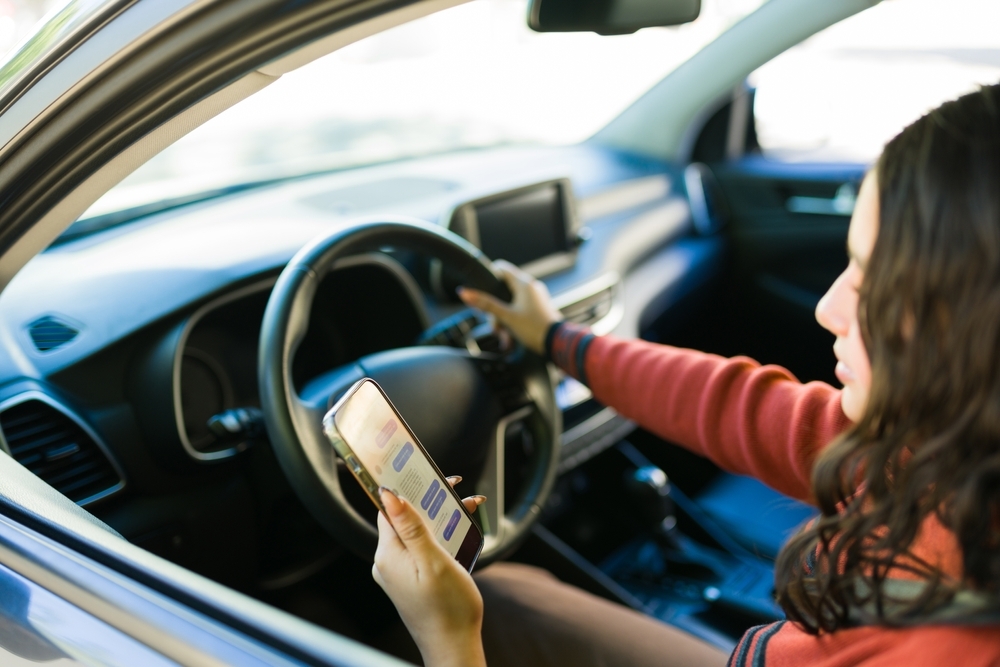
Every day, distracted driving changes and ends lives. Whether it’s glancing at a text, fumbling with a playlist, or checking directions, these small moments of inattention can lead to devastating crashes. In Florida, the law takes distracted driving seriously, and if you're injured because someone wasn’t paying attention, you may have the right to pursue compensation.
At Brooks, LeBoeuf, Foster, Gwartney & Hobbs, P.A., we represent victims of car, truck, and motorcycle accidents across Tallahassee and beyond. In this blog, we break down what Florida’s distracted driving laws actually prohibit as of July 2025, how those laws can affect personal injury claims, and what you can do if you’ve been injured in a distracted driving crash.
What Florida Law Says About Distracted Driving
Under Florida Statute §316.305, known as the Florida Ban on Texting While Driving Law, it is illegal to text while operating a moving vehicle. Specifically, the law prohibits:
- Manually typing or entering multiple letters, numbers, or symbols into a wireless device
- Sending or reading texts, emails, or instant messages
- Engaging in nonvoice interpersonal communication (like messaging apps) while driving
Important: This prohibition applies only when the vehicle is in motion. If you’re stopped at a red light or parked, the statute does not apply.
Additionally, the law allows drivers to:
- Use a navigation system or GPS
- Activate or deactivate features using one-touch or voice commands
- Interact with devices in ways that don’t involve typing or reading messages
So while the statute doesn’t ban all handheld phone use, it specifically targets the most dangerous behaviors, such as manual typing and data reading during active vehicle operation.
Similar Post: Navigating Florida’s No-Fault Insurance Law After a Car Accident: A Guide for Victims
Florida’s Strict Rules in School and Work Zones
Florida takes additional steps to protect children and roadside workers, imposing even stricter rules in areas where these vulnerable individuals are at higher risk.
Under Florida Statute §316.306, handheld use of a wireless device is prohibited when driving through:
- School crossing zones
- School zones during posted hours
- Active work zones with workers present and signage displayed
In these areas, just holding your phone, even for GPS or a phone call, can result in a citation. Drivers are expected to go completely hands-free. The goal: eliminate distractions in places where children, pedestrians, and road workers are most exposed.
The Reality: Distraction Goes Beyond Texting
While texting gets the most attention, it’s just one form of distracted driving. Florida’s statutes address texting directly, but any other behavior that takes your hands off the wheel, eyes off the road, or mind off driving can be considered distracted driving in a civil negligence claim. These behaviors may not all be illegal, but they can be legally significant in a crash investigation. Common examples include:
- Eating, drinking, grooming, or applying makeup
- Adjusting music or navigation apps
- Reaching for items inside the vehicle
- Conversing with passengers in a way that diverts attention
- Using a handheld phone for any purpose in restricted zones
Even if a behavior isn’t explicitly banned under the statutes, it can still be used as evidence of negligence in a personal injury case.
How Distracted Driving Affects Your Florida Injury Claim
If you were injured by a distracted driver, proving that distraction occurred can significantly strengthen your case. Evidence may include:
- Cell phone records showing texting at the time of the crash
- Dashcam or surveillance footage revealing device use or erratic driving
- Witness statements supporting your account
- Crash reconstruction suggesting the driver failed to react appropriately
Even if the driver didn’t receive a traffic citation for texting, their behaviors could still be deemed negligent under Florida civil law. This is key to recovering damages for medical expenses, lost income, pain and suffering, future rehabilitation or care costs, and more.
What to Do If You Suspect Distracted Driving Caused Your Crash
If you believe the driver who hit you was distracted, take these steps right away:
- Report your suspicions to police at the scene or during your statement.
- Preserve all evidence, including photos, videos, and witness contact info.
- Seek medical treatment right away, even if symptoms seem minor.
- Avoid discussing or posting the accident on social media.
- Contact a personal injury lawyer quickly, so they can begin investigating and gathering evidence before it's lost.
Distracted driving cases often depend on fast action. Cell phone data can quickly be deleted or overwritten. Video surveillance from nearby businesses may only be stored for a short period. An attorney can help secure this evidence before it disappears.
Similar Post: Your Rights After a Car Accident in Florida: Steps to Protect Yourself and Your Claim
Why Choose Brooks, LeBoeuf, Foster, Gwartney & Hobbs, P.A.?
We’ve seen firsthand how distracted driving upends lives. Our firm stands by victims of negligence. We know what it takes to build a strong case, prove fault, and pursue the full compensation you deserve.
Based in Tallahassee, our legal team handles serious personal injury claims across the state of Florida and beyond. Whether your accident involved a texting driver, a distracted truck operator, or someone using their phone in a school zone, we’re here to help.
Injured by a Distracted Driver in Florida? We’re Ready to Help.
Don’t wait to get legal advice. If you or a loved one has been injured by a distracted driver, reach out to Brooks, LeBoeuf, Foster, Gwartney & Hobbs, P.A. today. We offer confidential consultations to walk you through your rights, evaluate your case, and explain your next steps.
Let us help you hold the distracted driver accountable—so you can focus on healing.
Disclaimer: This blog is for informational purposes only and does not constitute legal advice. Reading this blog does not establish an attorney-client relationship. Every case is different, and legal outcomes depend on specific facts. For personalized guidance, please consult a licensed Florida attorney.
